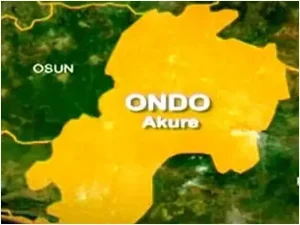
PSG storm back to claim 3-1 win over Villa
"It was a bitter ending," said Unai Emery
Read More
Comment
0

After declaring Texas residency, Tulsi Gabbard voted in Hawaii
“If she voted in Hawaii without actually living up to Hawaii’s eligibility standard, then that’s a problem...” said Levitt who served as a voting policy adviser in the Biden administration.
Read More
Comment
0

Inside Trump’s chaotic 24 hours, six insane things he did
Today in things that absolutely did not happen... the President claimed foreign nations have been calling and calling, begging to do a deal to get rid of their tariffs.
Read More
Comment
0
Trump explains why he paused tariffs: “People were getting yippy”
In a recent interview, President Trump revealed that his decision to pause tariffs came after he observed that people were becoming overly anxious and reactive, describing them as “yippy.”
President Trump on why he paused tariffs: "I thought that people were jumping a little bit out of line. They were getting yippy, you know, they were getting a little bit yippy, a little bit afraid." pic.twitter.com/kzoH6psG15
— CSPAN (@cspan) April 9, 2025
Comment
0

Amazon cancels Chinese orders, plans $15billion U.S expansion amid steep U.S tariffs
Amazon is considering a $15 billion investment to expand its U.S based warehouse network...
Read More
Comment
0

Panic as three headless bodies found floating in Ondo river
Anxiety has gripped residents of Odigbo, in Odigbo council area of Ondo State, as three headless bodies were discovered floating in a river.
Read More
Comment
0

2Baba’s lover introduces self as ‘nee Idibia’ at plenary, sparks laughter in Edo Assembly
“My name is Honourable Natasha Irobosa Osaworu, née Idibia,” she said in a video seen by TheCable before getting into her speech during the state assembly plenary.
Read More
Comment
0
SEN. BLUMENTHAL: “There is no apparent hope for a deal with China.”
“Trump has thrown a bomb into the global economy…”
SEN. BLUMENTHAL: “There is no apparent hope for a deal with China.” pic.twitter.com/Dbuaby2lFF
— Daily Caller (@DailyCaller) April 9, 2025
Comment
0

Matic labels Onana ‘one of United’s worst goalkeepers’
"At least I've lifted trophies with the greatest club in the world. Some can't say the same."
Read More
Comment
0

I left office with the same physical assets I had before becoming president- Buhari
FORMER President Muhammadu Buhari has advised those in leadership positions to attach more importance to the welfare of the people than their personal welfare.
Read More
Comment
0